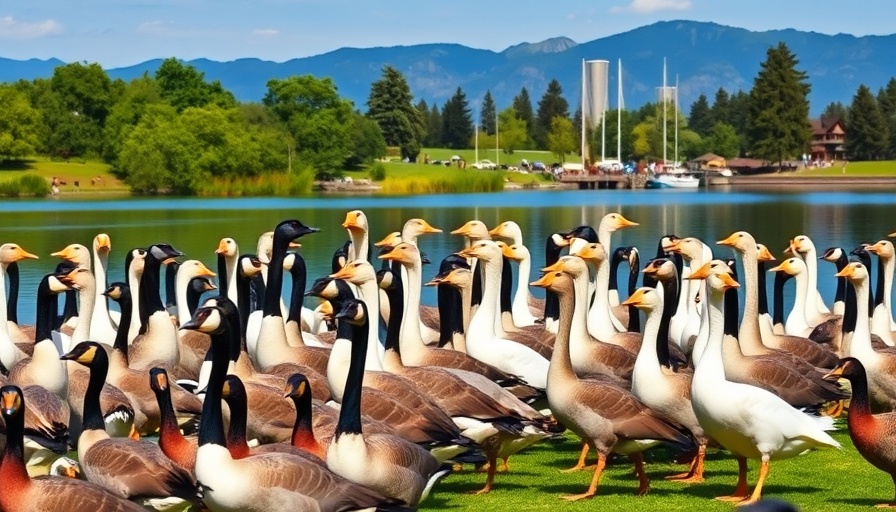
Should We Gas Canada Geese in Michigan? A Controversial Proposal
The question of whether to gas Canada geese in Michigan has ignited heated debates among residents and activists alike. With the Michigan Department of Natural Resources (DNR) extending its pilot program for euthanizing geese using carbon dioxide, there are strong opinions on both sides of the argument.
Understanding the Program
Initially launched in 2022, the program allowed property owners to seek permits to humanely euthanize geese if they posed a health risk, such as contributing to beach closures due to E. coli contamination. The program has since evolved to permit gassing in more scenarios, now including instances where there are over 100 geese, provided that property owners have consulted wildlife biologists and have attempted non-lethal measures.
The Growing Goose Problem
As Kaitlyn Barnes, the DNR’s acting waterfowl specialist, noted, large flocks can quickly lead to overwhelming issues. "When they're molting and they're flightless, there's a lot of goose feces, a lot of feathers on the ground," she explained. Large populations of geese are known to be associated with property damage, environmental issues, and general inconvenience, especially for residents who frequent parks or beach areas.
Activist Outcry: The Ethical Debate
Activism against the program is robust. Many argue that gassing these birds is inhumane, and they advocate for non-lethal methods of population control. As one resident articulated at a recent Natural Resources Commission meeting, Canada geese are not just nuisances; they symbolize lifelong partnerships and the beauty of nature’s family-oriented behaviors. This emotional appeal raises pertinent questions about the morality of such actions.
Comparisons to Other States
Michigan isn't alone in addressing issues related to Canada geese. Other states, like New York, have developed similar programs. The controversy surrounding these measures points to a national conversation about wildlife management, property rights, and humane treatment of animals. As local wildlife populations expand, methods to manage them have become a pressing matter.
Exploring Alternatives: Can We Manage Geese Humanely?
The important dialogue isn't exclusively about gassing geese; it invites broader considerations regarding wildlife management. Many communities are exploring non-lethal alternatives such as habitat modification, egg addling, and using trained dogs to herd flocks away from high-traffic areas. Education about coexisting with wildlife and promoting natural population control methods could lead to a balance that addresses health and safety without resorting to lethal measures.
Future Implications and Community Feedback
As discussions continue within local commissions and boards, community feedback is crucial. The DNR’s decision to extend the gassing program has arguably created a ripple effect of concern among residents who have various connections to these birds. Some see them as symbols of natural beauty, while others view them purely as nuisances.
This growing divide highlights the need for more public forums to discuss and brainstorm creative, compassionate solutions that accommodate both the environmental concerns of denser wildlife populations and the sentiments of residents.
Making Informed Decisions: Join the Conversation
The topic of Canada geese in Michigan presents an opportunity for the community to engage in informed decision-making. Understanding the implications of wildlife management strategies allows residents to voice their concerns and influence future guidelines. It is vital to reflect on how decisions are made about our local ecosystems and animal welfare.
As we navigate complex issues like wildlife management, there is power in community consensus. Everyone’s voice matters, and collectively we can advocate for resolutions that align with our values while ensuring safe, healthy environments.
Share your thoughts—let’s work together to protect both residents and the wildlife that call Michigan home.
 Add Row
Add Row  Add
Add 




 Add Row
Add Row  Add
Add 

Write A Comment